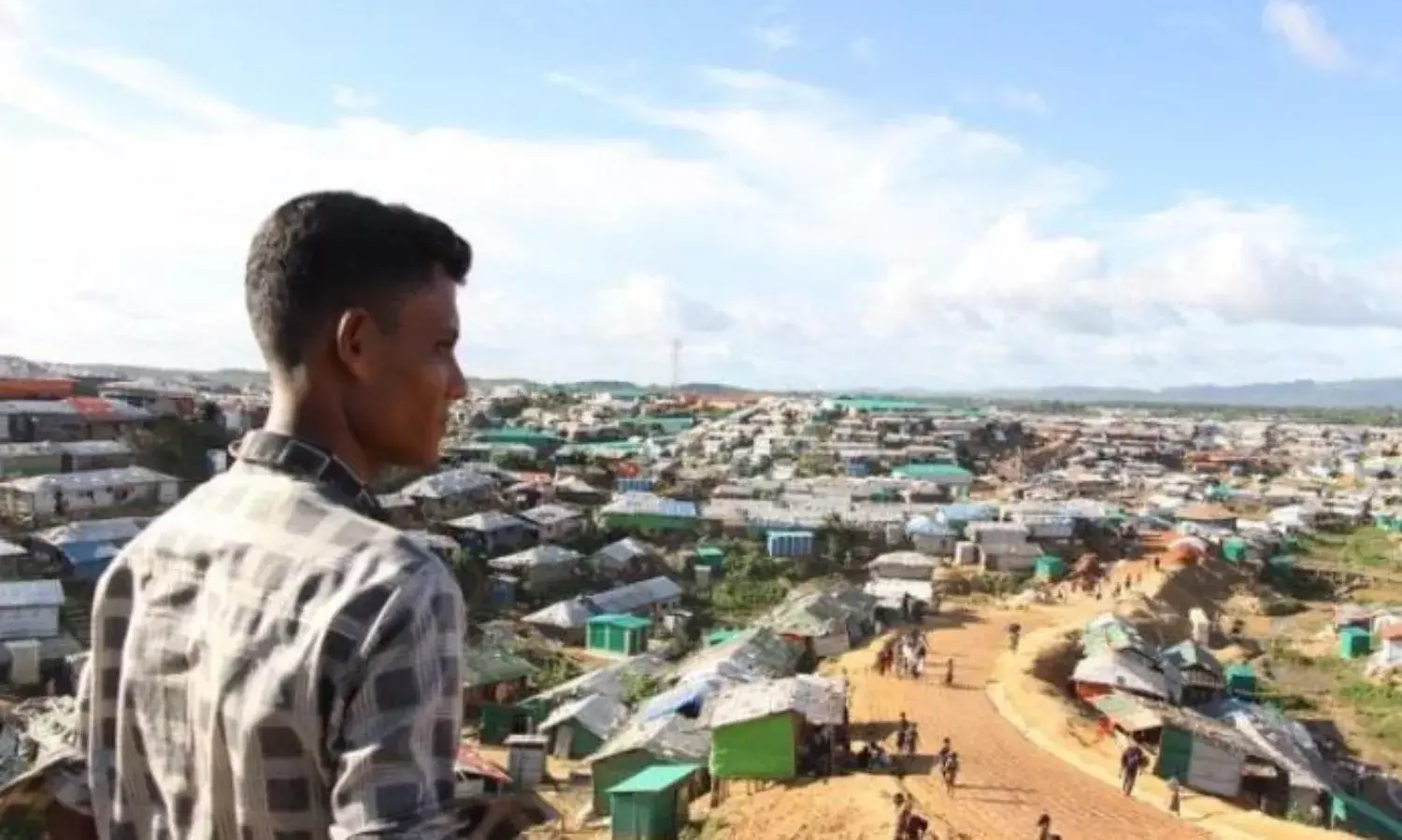Bangladesh Rescues 400 Rohingya From Deep Waters
In Midst of Pandemic
UNITED NATIONS: Nearly 400 Rohingya refugees have been rescued in Bangladesh after being at sea for two months.
Bangladesh coast guards reported rescuing 382 Rohingyas, including many women and children, who were starving and stuck on a boat as they were trying to reach Malaysia, the BBC reported on Thursday.
Coast guard spokesman Lt Shah Zia Rahman told AFP news agency that they were on “a big overcrowded fishing trawler” and were brought to a beach near Teknaf.
In the midst of the current coronavirus pandemic — on March 26 Bangladesh went into a nationwide lockdown in an attempt to contain the spread of the coronavirus — this rescue effort poses particular concerns about potential coronavirus cases and/or it being spread in the camps, where people remain at extremely high risk of contracting and spreading the disease.
The Bangladesh government also closed the 34 refugee camps in Cox’s Bazar district on Apr. 8, allowing only medical aid and essential food into the camps.
Latest figures show that the country has just over 1,500 reported cases of the coronavirus and 60 deaths.
“They have not been moved to any refugee camps, they’re getting the medical attention that they need,” Stéphane Dujarric, Spokesperson for the United Nations Secretary-General António Guterres, told IPS on Thursday.
“The survivors, who include a large number of women and children are all in weak physical condition, many dehydrated and malnourished and in need of immediate medical attention,” Dujarric said at a press briefing on Thursday.
A photo shared on social media by the Rohingya Women’s Education Initiative showed a large group of people, all sitting extremely closely. IPS was not able to independently verify if this photo was of the rescued refugees.
Dujarric also added that according to the U.N. High Commissioner for Refugees (UNHCR), those on board said about 30 more refugees may have died while on the ship because of lack of food, water, and fuel.
Citing reports and rumours where people have reportedly said the refugees have tested positive for coronavirus, he said there is currently no evidence to substantiate these claims.
Even though there are currently no positive cases of coronavirus among the rescued refugees, he said they’re “being watched medically”.
Other advocates have also raised concerns about the refugees being rescued especially under current circumstances.
Biraj Patnaik, Amnesty International’s South Asia Director, lauded the Bangladeshi government for taking the refugees into the country, but called for authorities to ensure proper care for those rescued.
“Given the ordeal they have passed through, adrift on the sea for two months, they need to be provided with immediate medical attention and adequate food and shelter,” he said in a statement.
“At a time when there are fears that COVID-19 could strike the densely populated and poorly resourced Rohingya refugee camps in Cox’s Bazar,” he added, “there’s also a need for the authorities to ensure that the rescued refugees are protected from the spread of the virus and will receive medical attention if they need it.”
Advocates have been sounding the alarm for how the coronavirus crisis will affect South Asian countries, given living situations where many often live together in close quarters.
Currently, about more than one million refugees are living in the camps in Bangladesh, a large number of whom arrived during the latest exodus in 2017, fleeing the Myanmar military’s violent crackdown on the community.
On Thursday, in response to the Associated Press’ query about whether the U.N. will call on the Myanmar government to respond, Dujarric further reiterated Guterres’ recent plea for a ceasefire on all areas of conflict under the current coronavirus threat, given that can further exacerbate the current situation especially for vulnerable communities, putting them further at risk of contracting the disease.
Inter Press Service





